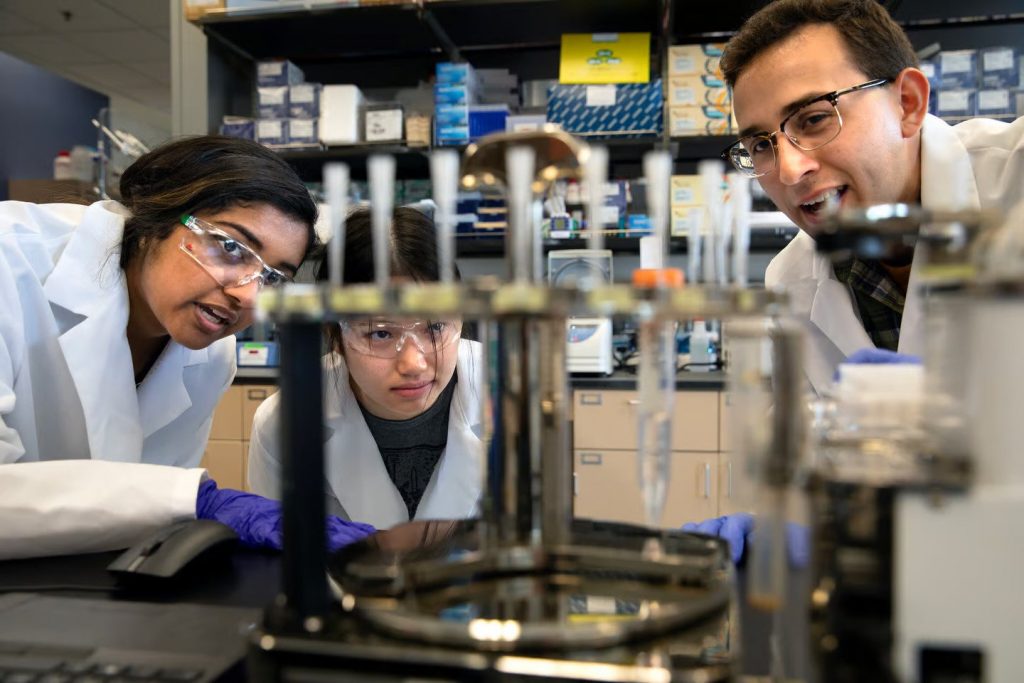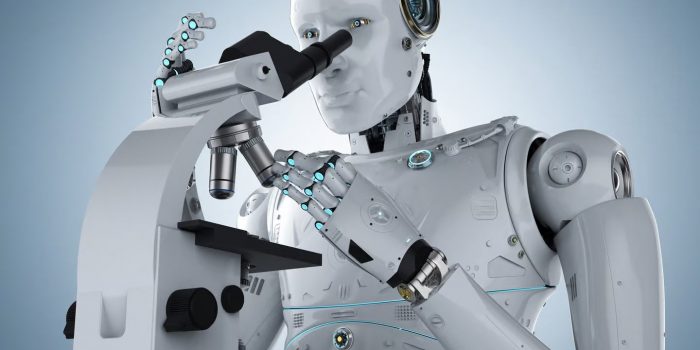Scientific endeavors often entail the arduous task of sifting through vast volumes of data, a process that can be tediously mundane for humans but effortlessly accomplished by artificial intelligence.
Introducing a groundbreaking platform called BacterAI, capable of conducting up to 10,000 experiments per day, enabling it to independently learn and enhance our understanding of bacteria.
Within the human body resides trillions of microorganisms, occupying nearly every internal and external surface. Among them, many play crucial roles in specific bodily functions, while others are responsible for causing illnesses.
Ongoing research continuously reveals the intricate interconnectedness between our overall health and the composition of our microbiomes. However, managing and exploring the associated data remains an overwhelming challenge.

“We know almost nothing about most of the bacteria that influence our health,” said Paul Jensen, corresponding author of the new study. “Understanding how bacteria grow is the first step toward reengineering our microbiome.”
Artificial intelligence excels in handling vast datasets and identifying patterns, making it an ideal tool for scientists to analyze bacterial data. However, a significant challenge arises when dealing with species that lack sufficient data, which is the case for a substantial portion of bacteria—approximately 90% of them remain understudied.
To tackle this issue, researchers at the University of Michigan have introduced an innovative platform named BacterAI. This platform possesses the remarkable capability to study bacteria even in the absence of prior knowledge. It accomplishes this by generating its own dataset from scratch, employing a series of meticulously designed experiments executed by laboratory robots.
Each experiment’s outcomes serve as input for subsequent experiments, creating a continuous feedback loop. Eventually, BacterAI consolidates its findings into a set of logical rules that can be comprehended and further tested by human scientists.

To showcase its capabilities, BacterAI was deployed to unravel the metabolic processes of two prevalent oral bacteria: Streptococcus gordonii and Streptococcus sanguinis. Specifically, the task at hand involved identifying the precise combination of amino acids that these microorganisms consume from a pool of 20 essential amino acids necessary for their sustenance.
This intricate undertaking necessitated sifting through an extensive array of over one million potential combinations.
BacterAI exhibited remarkable efficiency by assessing several hundred amino acid combinations daily, prioritizing the most promising ones for further investigation in subsequent experiments.
With the capacity to conduct up to 10,000 experiments per day, it accomplished substantial progress. After a span of nine days, BacterAI achieved an impressive 90% accuracy rate in making precise predictions.
“When a child learns to walk, they don’t just watch adults walk and then say ‘Ok, I got it,’ stand up, and start walking. They fumble around and do some trial and error first,” said Jensen. “We wanted our AI agent to take steps and fall down, to come up with its own ideas and make mistakes. Every day, it gets a little better, a little smarter.”


